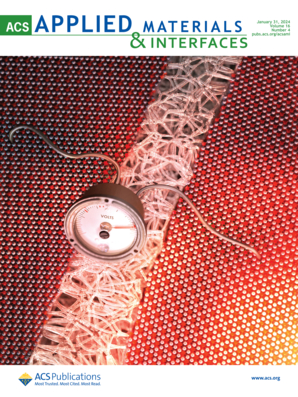宫颈癌有希望的预测性分子生物标记物(综述)。
IF 8.3
2区 材料科学
Q1 MATERIALS SCIENCE, MULTIDISCIPLINARY
引用次数: 0
摘要
宫颈癌(CC)是一个严重的公共卫生问题。疫苗接种和筛查计划显著降低了全世界 80% 的宫颈癌发病率,但在低收入国家,宫颈癌的死亡率仍然居高不下。CC的分期是治疗策略的决定性因素:CC早期的临床治疗包括手术和/或放疗,而放疗和/或同期化疗是局部晚期CC的推荐治疗策略。肿瘤的组织病理学特征可以有效地作为放疗反应的预后指标;然而,放疗的有效率在癌症患者之间可能存在显著差异。放疗失败通常与较高的复发、持续存在和转移风险相关;因此,放射抗性仍是最重要且尚未解决的临床问题。这种情况凸显了精准医疗的重要性,即寻找可能的预测性生物标志物,及时发现有治疗反应失败风险的患者,并根据遗传和表观遗传学特征提供量身定制的治疗策略。本综述旨在总结支持多种蛋白质、甲基化标记物和非编码RNA作为CC潜在预测性生物标志物的证据。本文章由计算机程序翻译,如有差异,请以英文原文为准。
Promising predictive molecular biomarkers for cervical cancer (Review).
Cervical cancer (CC) constitutes a serious public health problem. Vaccination and screening programs have notably reduced the incidence of CC worldwide by >80%; however, the mortality rate in low‑income countries remains high. The staging of CC is a determining factor in therapeutic strategies: The clinical management of early stages of CC includes surgery and/or radiotherapy, whereas radiotherapy and/or concurrent chemotherapy are the recommended therapeutic strategies for locally advanced CC. The histopathological characteristics of tumors can effectively serve as prognostic markers of radiotherapy response; however, the efficacy rate of radiotherapy may significantly differ among cancer patients. Failure of radiotherapy is commonly associated with a higher risk of recurrence, persistence and metastasis; therefore, radioresistance remains the most important and unresolved clinical problem. This condition highlights the importance of precision medicine in searching for possible predictive biomarkers to timely identify patients at risk of treatment response failure and provide tailored therapeutic strategies according to genetic and epigenetic characteristics. The present review aimed to summarize the evidence that supports the role of several proteins, methylation markers and non‑coding RNAs as potential predictive biomarkers for CC.
求助全文
通过发布文献求助,成功后即可免费获取论文全文。
去求助
来源期刊

ACS Applied Materials & Interfaces
工程技术-材料科学:综合
CiteScore
16.00
自引率
6.30%
发文量
4978
审稿时长
1.8 months
期刊介绍:
ACS Applied Materials & Interfaces is a leading interdisciplinary journal that brings together chemists, engineers, physicists, and biologists to explore the development and utilization of newly-discovered materials and interfacial processes for specific applications. Our journal has experienced remarkable growth since its establishment in 2009, both in terms of the number of articles published and the impact of the research showcased. We are proud to foster a truly global community, with the majority of published articles originating from outside the United States, reflecting the rapid growth of applied research worldwide.
 求助内容:
求助内容: 应助结果提醒方式:
应助结果提醒方式:


